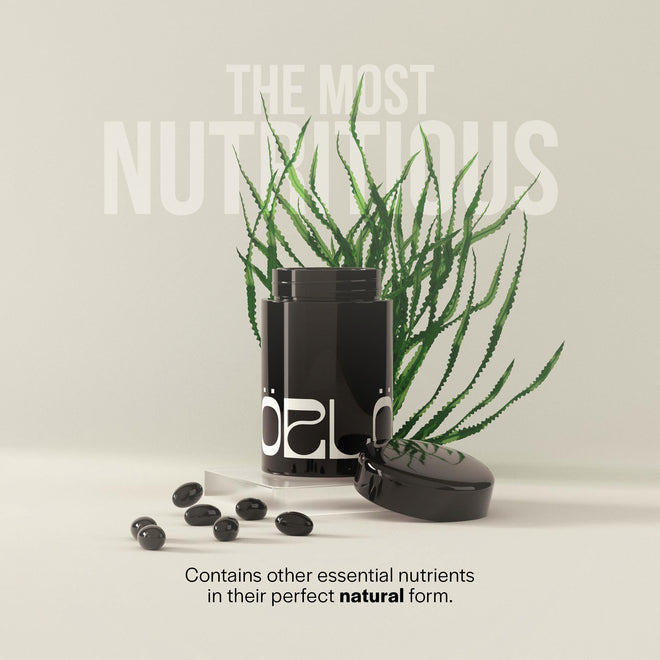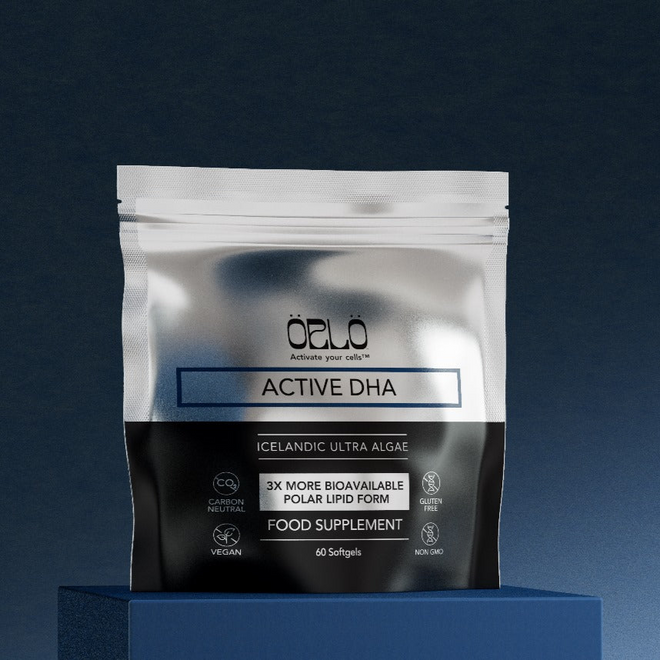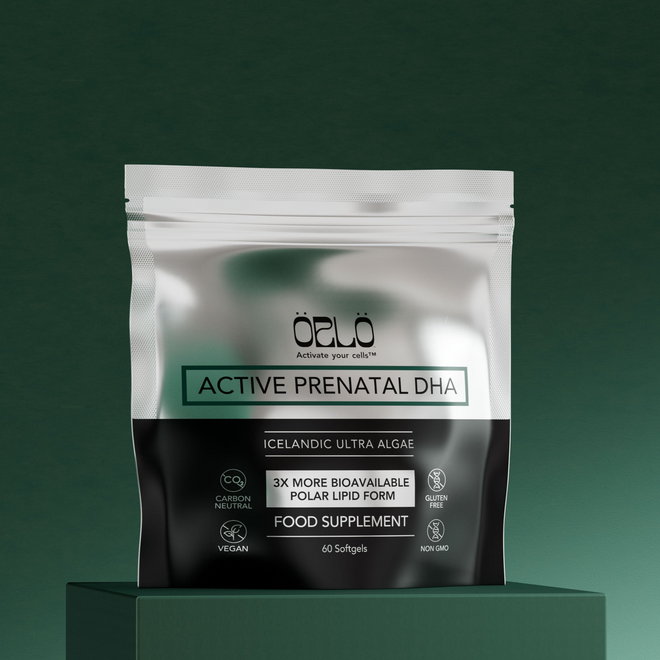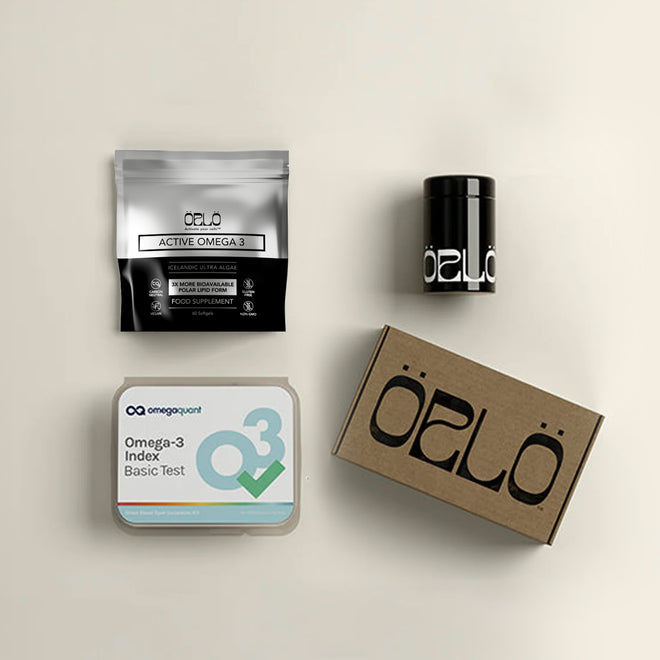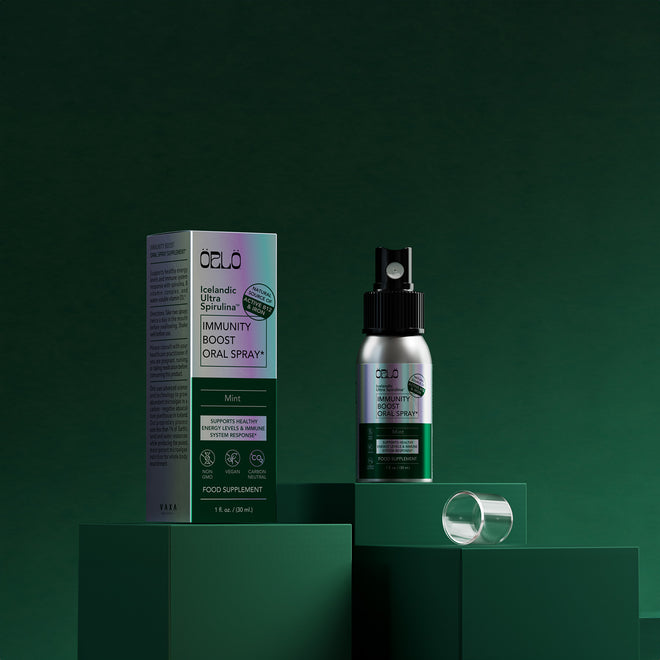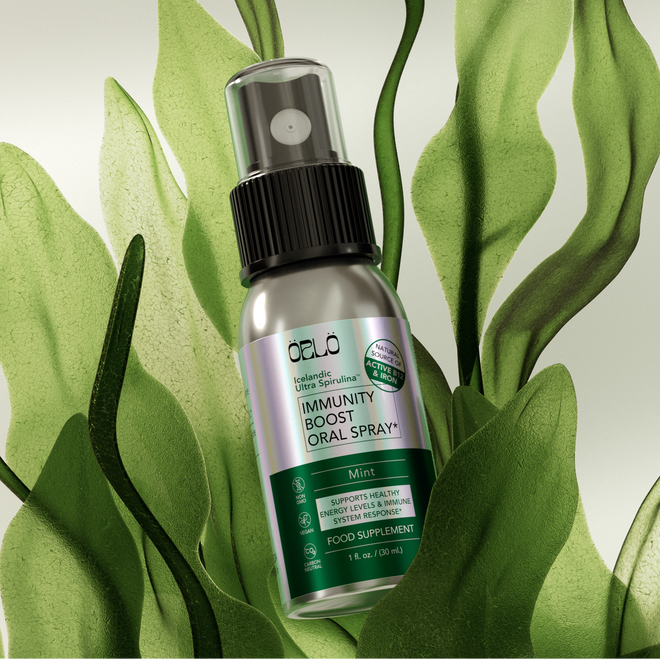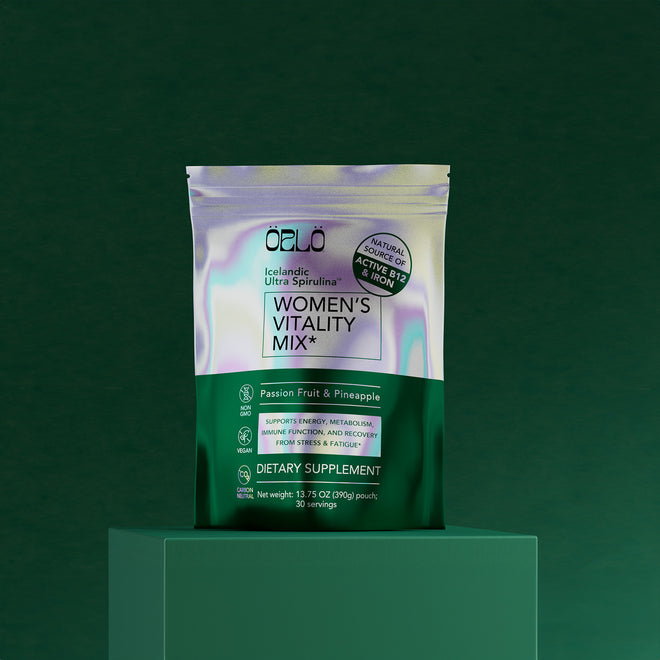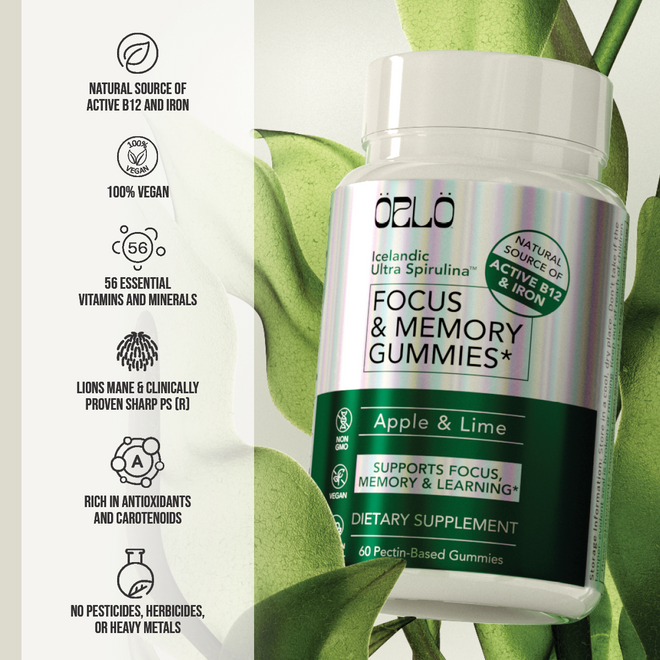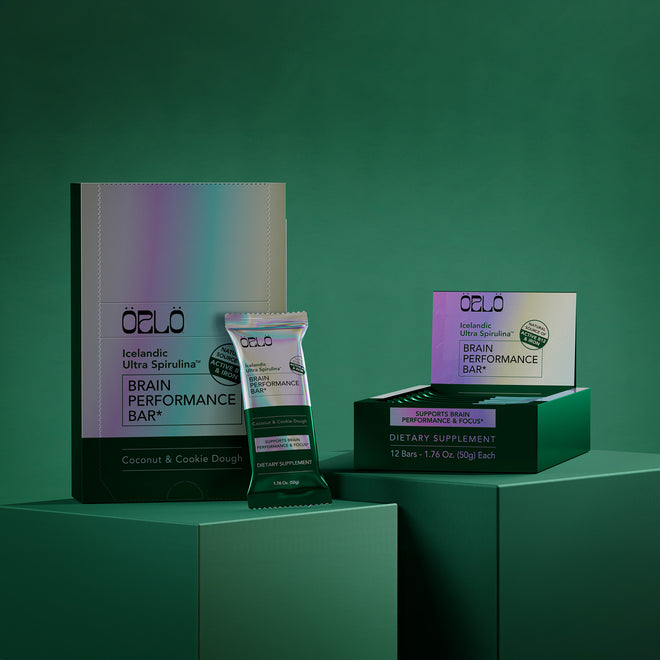25% Off - use code: HOLIDAYS
Hypnosis For Healthy Eating & A Better Life With Dr. David Spiegel, Co-Founder/Chief Scientific Officer at Reveri
Watch the episode here
“We have this three-pound organ on the top of our bodies, our brains, that is a major evolutionary advantage, but it doesn't come with a user's manual…That’s why I’m here.” Dr. David Spiegel, the Associate Chair of Psychiatry at Stanford University School of Medicine and Co-Founder/Chief Scientific Officer at Reveri, joins Corinna Bellizzi to take us deep into the emerging science of hypnotherapy as it relates to our health and wellness. With his background and expertise, he shows us how there is more to our overall well-being than meets the eye. In particular, he talks about how we can use hypnosis for healthy eating and achieving a better life. Follow along to this interesting conversation and discover the power of our minds to help us overcome the barriers that keep us from putting our best selves forward.
Key takeaways from this episode:
- Misconceptions about hypnosis
- How hypnotherapy can help people access their own superpowers
- Hypnosis and long-term health
- Self-hypnosis with Reveri
- Hypnotic Induction Profile
For an exclusive 2 week All Access Pass to Reveri, just tap this link from your phone: reverihealth.app.link/nutrition
Guest Social Links:
Website: https://reveri.com
Guest Profile: https://med.stanford.edu/profiles/david-spiegel
Instagram: https://www.instagram.com/reveri/
Medium: https://medium.com/reveri
Twitter: https://twitter.com/reveri_health
Facebook: https://www.facebook.com/groups/5052869674822282
---
Hypnosis For Healthy Eating & A Better Life With Dr. David Spiegel, Co-Founder/Chief Scientific Officer at Reveri
In this episode, we're going to dive into the emerging science of hypnotherapy as it relates to your health and wellness as we connect with Dr. David Spiegel. He is the Associate Chair of Psychiatry at Stanford University School of Medicine, and the Cofounder and Chief Scientific Officer at Reveri. He's a psychiatrist with many years of clinical and research experience studying stress, pain, sleep, and hypnosis. Educated at Harvard and Yale, he has written 13 books, 404 scientific journal articles, and 170 book chapters. He started Reveri so that you can tap into his expertise and change your mind. Dr. David Spiegel, welcome to the show.
Thank you very much. I’m very glad to be here.
It has been my pleasure to get to know you through the many shows you have guested on and to hear your melodic voice as well. I can see you're made for this. I wanted to start our conversation first with what made you decide to focus on hypnosis as a modality and psychiatric work.
It's part genetic and part environmental. I am the child of a psychiatrist and psychoanalyst who told me as I was growing up that I was free to be any kind of psychiatrist I wanted to be. Here I am. My father was in combat in North Africa in World War II. Before he shipped out, his refugee who couldn't serve in the military, but who was a forensics psychiatrist who learned about hypnosis offered to teach young Army ducks about it.
My father studied with him. He used it to help treat post-traumatic stress disorder and pain control for men who were wounded in combat. The dinner table conversations were pretty interesting. I occasionally got to watch him make a film of a patient who was undergoing hypnosis for things like non-epileptic seizures. It was quite dramatic to watch.
I took a course when I got to medical school. I figured I'd better learn about it formally. It was pretty interesting. My first patient was when I was on a pediatrics rotation at Children's Hospital in Boston, and the nurse said, “Your next admission is in room 342.” I could follow the sound of her wheezing down the hall. She was in status asthmatica. She was unresponsive and deaf, and their friend under the skin was thinking about general anesthesia and then steroids.
I get in the room, and there's this pretty fifteen-year-old redhead bolt upright in bed, knuckles white, struggling for breath. Her mother was standing there crying. There's a nurse in the room. I'm thinking, “What am I going to do? There were no more medication options.” I said, “Do you want to learn a breathing exercise?” She nodded. I got her hypnotized, and then I realized we hadn't gone to asthma in the course yet. I'm thinking, “What am I going to tell her?”
I came up with something very subtle and clever. I said, “Each breath you take will be a little deeper and a little easier.” Within five minutes, she's lying back in bed. She isn't wheezing anymore. Her mother stopped crying. The nurse ran out of the room. My intern came looking for me. I thought he was going to pat me on the back and say, “Nice job. What on Earth did you do?”
Instead, he said, “The nursing supervisor has filed a complaint that you violated Massachusetts law by hypnotizing a minor without parental consent.” I lived there for seven years. Massachusetts has a lot of weird laws that are not on the list. Her mother was standing right next to me when I did it. He said, “You're going to have to stop doing this.” I said, “Why?” He said, “It might be dangerous.”
One of the weird things about hypnosis is it's the oldest Western conception of psychotherapy. It's been around for hundreds of years, and yet people have either misperceived it as being ridiculous, a stage show trick, or terribly dangerous. It's an idea of those things. I said, “You can take me off the case if you want, but as long as she's my patient, I'm not going to tell her something I know is not true.” He stomps off. There was a meeting, a council of war among the attending, the chief resident, and my intern. They came up with a radical solution to the problem.
On Monday, they said, “Let's ask the patient. I don't think that had ever been done before.” She said, “I like this. I want to keep doing it.” She had been hospitalized monthly for three months. She had one subsequent hospitalization but went on to study to be a respiratory therapist. It was right in front of my eyes and it didn't take very long, I could see the change in the way that she managed her fear, stress, and discomfort. I never forgot it.
That's why 7,000 patients later, I'm still doing it and why I built Reveri to try and make what we've learned available to anyone who wants to use it. We have this 3-pound organ on the top of our bodies, our brains, that is a major evolutionary advantage, but it doesn't come with a user's manual. There are things you can do with your brain that you may not understand. That's why I'm here.
We have this three-pound organ on the top of our bodies, our brains, that is a major evolutionary advantage, but it doesn't come with a user's manual.
That story resonates with me for a couple of reasons. One of which is I had a dear friend who had asthma growing up. When they would have an asthmatic attack, they automatically entered a world of panic because it's an incredibly fear-inducing thing to suddenly not be able to breathe. When you see that up close in person, it changes how you view it. I then experienced an asthma attack, the only one in my life, when I was around 22 years old at college. It was pollen in the air or something that affected me. I was alone in my dorm room and suddenly, I couldn't breathe. I couldn't get air. I started to panic. This is before cell phones.
I had to sit down and calm my breathing, try to meditate, get to a relaxed state, and then it passed. I was able to get through this. Before I discovered your work and started research for this episode, I didn't understand that there was such a thing as self-hypnosis. Through doing this work, reading up on you, and listening to podcasts you've been on, I'm like, “I was doing self-hypnosis in this situation.”
In another case, when I was eighteen years old, getting my wisdom teeth pulled, the doctor had given me what they said was a threshold of local anesthesia that they could give me for the day. The pain medicine wore off when they were cracking my last tooth to remove because it was in the jawline. It’s an incredible pain.
I had to essentially enter this meditative state and picture myself on the beach with one of my dear friends walking and enjoying this moment, “Breathe through it,” as tears streamed from my eyes and a clamp was in my mouth to finish this process. It was an amazing moment for me and I realized that the power of the mind could get me through something that's incredibly stressful, painful, and traumatic without feeling on the heels of it like I had intense trauma about going to the dentist. It is something that has worn as a badge of courage over the course of my life. I could get through most things.
I would love for you to talk about what this research is around self-hypnosis and putting that power in the hands of individuals like us as opposed to the prescription of a doctor. I'm not knocking Western medicine. Without these treatments, people with debilitating asthma would not necessarily be alive nowadays. This isn't meant to treat, diagnose, or cure. We're having an open discussion here.
It's a health and wellness skill, but you did several things that, first of all, are very self-hypnotic. You shifted your focus of attention away from the fact that this dentist wasn't giving you adequate anesthesia and the thing went on too long. You were feeling terrible pain, but at the same time, you said, “I don't entirely have to concentrate on the pain. I can concentrate on something else. I can leave my body here and go somewhere else.”
We've done studies with children undergoing very painful, embarrassing procedures, having to have their bladders catheterized. I say, “We're going to Disneyland.” You play a trick on the doctor. You leave your body here and go somewhere else. You did that. You went to a vacation spot and you did something else. You took it as a challenge rather than a conquest. You said, “I can see this stressor as something that I can learn from and master.” The third thing that you did was focus on taking care of your body because very often with stressors, we feel immobilized and helpless.
One thing about any stressor you can do something about is change the way your body is reacting to it. Even if you haven't changed the stressor, that dentist was still breaking your tooth and pulling it out, but you could do something about what you concentrated on and how your body felt. That already teaches you the means of beginning to master the stressor, and you did. You wound up feeling proud of it. When people say that things like hypnosis are either dangerous or represent a loss of control, what you discover yourself is an increase in control. You must have felt more confident when other stressors came along later that you could deal with them.
As a woman in my 40s, having given childbirth twice, I was able to channel some of that knowledge. It's this innate knowledge within our bodies that we learned to forget is there. I say learn to forget because we're taught by the medical system to go for the pill of, “You have pain. Go grab the Advil. You have an issue in your foot. Go to the doctor. Get a brace or you might need surgery,” and things like this.
So much of the work around hypnosis has centered around stress, sleep, and pain because stress is something we have no matter what. Sleep is something we need to do healthfully and pain often can't be addressed purely with drugs. Can you talk to us about how this action of hypnotherapy can help it? This tool that you've created with Reveri can train people to access their own superpowers in this way.
That's a lovely way to put it. Hypnosis is a state of highly focused attention. It's like getting caught up in a good movie that you forget you're watching the movie. You enter the imagined world and believe in imagination. To do that, you also dissociate. You put outside of conscious awareness things that would ordinarily be in consciousness. You're sitting on a chair and hopefully, you were not feeling the sensations in your body touching the chair. If you were, we could stop the interview now.
We have a natural ability to either focus on or away from things in our environment. Our brain is very good at that. The third part of it is cognitive flexibility. You can try out things you didn't think you could do. For example, the way you did in the dentist's office or when you suddenly had this asthma attack. You discovered things about yourself that five minutes before, you would never have thought of.
That ability is part of our brain's ability to adapt to the world and the environment and master it. That's what you learn to do. That's what people can do with hypnosis. The reason I co-founded Reveri is I wanted everybody to have the opportunity to do this, not just the people that I got to see or my colleagues got to see.
The other thing is that we have this bias in our culture that the only real medical treatments are incision, injection, or ingestion. Operate, inject some medication, or take a pill. The risk-benefit ratio for chronic pain, for example, of opioids is vastly worse than it is with hypnosis. People can learn to control chronic pain with no side effects. There's a huge increase. There were 100,000 drug overdose deaths in 2022 in the United States. Most of them were not deliberate suicide attempts. There were people overdosing on opioids or fentanyl. They go to sleep and don't wake up because it suppresses respiration. These drugs are terribly dangerous and addictive.
When people worry about hypnosis being dangerous, I say, “If you want danger, start taking chronic opioids. You get danger there.” It's an opportunity that we have overlooked for far too long to teach people how to use their brains. The strain in pain lives mainly in the brain. The brain interprets signals as painful and you can learn to reinterpret them.
One of your most important pieces of work and something relevant to this show is this paper that you put out with Marianne Barabasz, Hypnotizability And Weight Loss In Obese Subjects. Being probably in the beginning stages of perimenopause, I have personally noticed a little bit of weight gain around my middle where it was not a problem before. I'm interested on a personal level and I think many of our readers will be too about how something like hypnosis could help us achieve not only our weight loss goals but that long-term health and metabolic health.
It's an issue a lot of us struggle with. Weight control is a huge problem in the United States because our diet is generally horrible. We have food that is over-processed, tasteless, and full of salt, sugar, and refined substances that do us more harm than good. We don't exercise enough. We thought about how we could use hypnosis to help people eat better and eat with respect for their bodies. The problem is that people often worry about their hunger and urges. They don't pay attention to their body signals to them of satiety as well as hunger.
We teach people how to go into a state of self-hypnosis to get comfortable. Imagine you're floating in a bath, a hot tub, or in space and then concentrate on three concepts. One, for my body, the wrong foods or too much of the foods can be damaging. I need my body to live. I owe my body respect and protection. You mentioned you've had two children. If you think of feeding your body, you would never force more food or the wrong food into a baby's mouth than you know it was good for it. Your body is as dependent upon you as your baby was.
Think of your body as if it were your baby and feed it the way you would feed your baby with the same care and concern. One of the interesting things about the capacity of hypnosis to stimulate imagination is that you can enjoy eating more even while you eat a diet that is respectful of your body because you can eat like a gourmet. You can focus on the texture, aroma, flavor, and temperature of the food. Savor every bite. Have a wonderful, enjoyable meal that is composed of food that is better for your body.
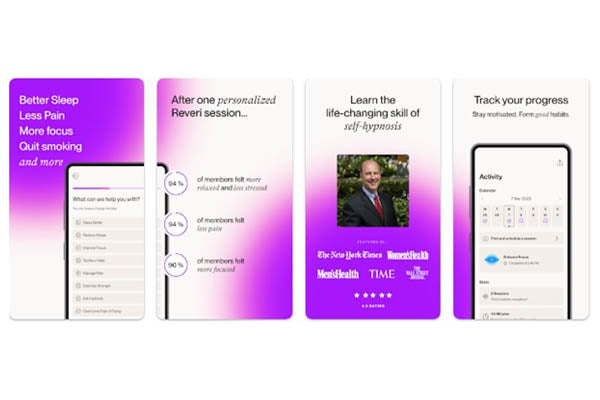
The amount that you eat has virtually nothing to do with how much you enjoy eating. Very often, you remember the first taste of something and then you get in a conversation or you watched television or something and you don't even notice the rest of the stuff you're eating. It's a matter of learning to enjoy eating more and eating with respect for your body.
In reviewing this piece, I saw that some of this research started from a smoking cessation study that you did back in the ‘70s. It reminded me of meditative mantras in a way or affirmations. What is the primary difference between something like this, self-hypnosis, or perhaps a similarity with some of these ideas of positive affirmations and even meditation?
One of the things that we focus on is what we're for, not what we're against. I can remember driving up the freeway in Connecticut when I was in college, and there was a sign that said, “Are you dying for a cigarette?” A lot of people said, “I am.” It's clever, except you're focusing on what you're against. Instead, what you can do intensively with hypnosis is focus on what you're for, respecting and protecting your body.
We all have lots of urges that we don't act on. You'd like the urge to the money in the local bank, but you don't go take it because you are going to pay the price for it. In the same way, if you focus on enhancing your interaction with your body, the way you take care of your body, and the way you nurture and feed it, that's something you can feel good about immediately. You don't feel like, “I'm depriving myself of something. I want more of this or more of that or some different food.” You can feel good about being a better mother to your own body.
As you mentioned about affirmations, you focus on what you're for. That is a much more powerful thing because the best way to change behavior is intermittent positive reinforcement. Rather than feeling deprived or that you not giving yourself something to eat that you want or deprived of the urge to put more tar and nicotine into your lungs, you can say, “I'm going to be a better caretaker for my own body. I'm going to respect and protect my body.”
We had a Reveri user who was a social worker and smoked for many years. She didn't even want to stop smoking, but we had a study going. She thought, “I'll sign up.” It was the same idea, “For my body, smoking is a poison, I need my body to live. I owe my body respect and protection.” She didn't like it the first time she tried it, but she went home that night and tried it again. She lit up a cigarette. She looked at it and said, “Who needs this?”
She has not smoked a cigarette since. She said, “I didn't even want to stop. My friends can't believe it.” She's now helping her friends stop smoking because she usually hypnosis to focus on what she was for, respecting and protecting her body rather than what she was against. The urge wasn't important anymore to her.
She said to me, “This is some crazy voodoo crap and I mean that in a good way.” It's a way of shifting gears, trying out, being different, seeing what it feels like, focusing on what you're for, respecting and protecting your body. That can have tremendous power. It doesn't have to be difficult or painful. You don't have to feel sorry for yourself. You can pat yourself on the back and say, “I'm finally being a better parent to my own body. Good for me.”
You're touching on something that we should talk about and that is simply that we can use food as a drug, and many of us do. We go for foods that are very high in sugars and you see this in the world of alcoholics. People who have stopped drinking will transfer the addiction to sugar and they continue on that path because it scratches a lot of the same itch.
Sometimes, we have a relationship with food that isn't healthy where we consume foods that scratch the itch of the salt, fat, and sugar, highly processed, and don't provide a lot of micronutrients that can support a healthy metabolism and overall gut microbiome, etc. From this ideation, I could almost take that same viewpoint. Instead of saying, “These are the things that are bad,” I could say, “These are the things that are good that I'm welcoming.” Use that perspective along with something like this self-meditation to have success. That's what it sounds like to me.
That's a very good summary of most of what goes on. There are a couple of pieces to that. You shouldn't feel that you're going to starve or deprive yourself. Instead, you should think, “I'm going to take better advantage of this wealth of food and drink that we have available to us and get the stuff not that big companies want to process and sell to me and put enough flavor in it that so I need to keep eating more.”
I notice when I go to France and I do that often, I never gain weight. I love the food. It's wonderful because it is unprocessed, beautifully cooked, and flavorful. I know when I have had a bite of a piece of fish or meat in France, whereas here, you keep eating, hoping you're going to taste something. Finally, you'll get the flavor itself is reinforcing. It convinces you that you've eaten it. You tend not to overeat because you know when you're eating it and when you've had enough. Often, that's not the case here. Part of it is changing what eating means for you. It's a means of nurturing your body and enjoying the process of eating. You know when you're hungry and full, and then you stop. It becomes a more all-encompassing pleasurable experience and not a struggle to finally get a taste of something.

This echoes nicely a lot of what Dr. William Li has shared on this show. He's been a guest a couple of times. He wrote a book called Eat To Beat Disease and Eat To Beat Your Diet. He tries to counsel his entire community to say, “Fall in love with food and look at all the bounty of these wonderful foods that we have available. You don't need to buy this package of stuff that is engineered. It's not in a food-like state much anymore, either.”
Industrial eating is no fun. It's not good for your body. You mentioned the meditative part of it. Meditative tradition is related to hypnosis. It's not the same thing. It's an Eastern tradition that is not meant to solve a problem. Hypnosis is Western. We're always trying to be efficient. The French like to say that Americans live to work and the French work to live. If you think of meditation as a way of open presence and letting feelings flow through you, getting over yourself, not focusing too much on who you thought you were, and focusing on your body, that's helpful.
The recommendation is to do it half an hour twice a day. Many people do that. It's a wonderful thing, but the nice thing about hypnosis is you can do something effective in five minutes. Like in that paper with Marianne Barabasz, in one condition, we taught people to eat while focusing using hypnosis on intensifying the flavor, texture, aroma, and eating with respect for your body.
This was a weight loss study. These women lost about 20 pounds and they kept it off for 3 months, the ones in the hypnosis condition, which was significantly more than the women in the other conditions. It can be highly effective and it can last. Diets don't work. People starve themselves. They lose weight. They gain it back. This is not a diet. It's a different way of eating and living.
I've had the pleasure of watching you walk people through self-hypnosis, and even in the case of Tom Bilyeu. You helped him enter this state as a skeptic of hypnosis. I downloaded the Reveri app on my Android. Thank you for having it on Android. I have a five-month-old puppy. It was a lot. While my dog was distracting me, I still was able to get into a relatively okay connected state. I did not notice because you are asking people to be buoyant, feel the arm lift, and feel themselves floating.
I did not notice my hand automatically raising. I had to pull it up, but then I had this interesting sensation where I felt an awkward pulling on my skin if I tried to put it down. It didn't feel good. It felt wrong. It wasn't that it was naturally staying up on its own as much as if I tried to put it down. It felt gross. As a skeptic of being able to perform self-hypnosis while my puppy was trying to chew on my elbow probably, I did this.
You quashed the skeptic in me. I didn't think that I could use an app coupled with your voice, which is beautifully there and present. I was able to enter some of this altered hypnotic state. I wanted for you to perhaps describe in your own perspective how you're able to transmit this knowledge and this ability to hypnotize oneself with your aid through an app. What brought this to be? How does it work?
I love that description. I applaud you for your exploratory courage and trying it out and for pointing out that you surprised yourself that this was not the ideal circumstance for doing this with your puppy going after your elbow and all that. You were inclined not to believe anything real was happening and yet you noticed that you're left-hand felt different from your right, and it didn't feel right being down. You were able to shift gears and have a different premise about what your body was processing and experience it. That's totally cool.
That's why we built Reveri. All hypnosis is self-hypnosis. I'm not doing anything to you. I'm showing you how to use your brain differently and change the way your body and your brain feel. You have the ability to do it. What's happening in the brain is we've taken people and put them into the MRI scanner. MRI or Magnetic Resonance Imaging is a powerful technique that gives you beautiful images of brain anatomy and function, what's going on in the brain.
We find that three things happen in the brain. First of all, you were turning down activity in a part of the brain called the anterior cingulate cortex. It's like a C on its edges in the middle of your brain. The front part is the center of what we call the salience network. It's part of your brain. It’s a pattern-matching region that if you hear a loud noise, hijacks your attention. You think, “What's going on? Somebody is shooting somebody out there. What's happening?”
We turned down activity in that region. You're less worried. You didn't worry about the puppy. The puppy was there. The puppy was doing his thing. You were doing yours. It didn't disrupt your attention the way it might ordinarily. The second thing is we increase the functional connection between the executive control network in your prefrontal cortex, the part of the brain that manages what you do, plans, and controls things.
A little part of the wrinkle is the insula. It's Latin for Island. It's a part of the brain that is a mind-body conduit. It connects the brain to the body. It helps you control what's happening in the body, turn up your heart rate, and turn it down as you do, for example, when you're stressed, and also perceive what's happening in your body. You're controlling and more aware of what's happening in your body as you were when you had the asthma attack.
Part of it is when people panic, it's like a snowball effect. You think, “Something bad's happening.” You notice that your body's reacting to it. You had trouble breathing. You get more anxious. The more anxious you get, the more your body tenses up until you manage to calm your body. You focused on helping your body deal with this stressor. You manage to break the attack. The third thing that happens is in verse connectivity between the executive control region and the posterior singular cortex. That's in the back of that inverted C.
It's a part of the brain that is called the default mode network. It's involved in recent memory but primarily in self-reflection. When you're not doing much and you're thinking, “Who am I? What do people think of me? What am I like? What am I not like?” It's that part of the brain. What you're doing is saying, “My brain knows how I usually handle things like this, but I'm not going to think about that. I'm going to do what I'm going to do.”
That's the cognitive flexibility and hypnosis. You can do things differently, even if you thought you could do them or you never thought of doing them. You never thought that you're left arm would suddenly start to feel different from your right. It feels gross if you put it down and all of a sudden, you're doing it. What's primary is your experience of it, not your pre-existing thought that that couldn't possibly happen. You put that aside.
That's a great opportunity for change and for handling things you didn't think you could handle, as you describe with the wisdom teeth being removed. This is a capacity that we have that we can utilize. One commonality with hypnosis is that experienced meditators also turn down activity in the default mode network. When the meditation teacher says, “Get over yourself. Don't think about yourself. Let the experiences flow through you,” that's part of what's also happening in the brain. It's a state of intense focus and cognitive flexibility. You can do more than you thought you could do. You don't have to take it from me. You experienced it yourself.
One other example that you mentioned on some other show you've been on that I heard is when you have this intense level of focus much that you don't realize what's going on around you. I have an early memory of being around eight years old and engrossed in a book as one example. Another example is being focused on my work. It's like the day will slip right by and you don't realize that time has passed.
When you're in that intense level of focus and I'm sure you've experienced this when you are reading a ton of research and you suddenly start to connect all these dots together and you have some realization about how these things fit together, it feels like you've had a moment of profound awakening in a way. I've experienced this and researched in Archeology, my undergrad. Helping people identify the signals of this that they may have experienced in their whole lives already will help them understand that this isn't new.
It is not unnatural. It's supernatural. All eight-year-old kids are in trances all the time. You call an eight-year-old into dinner. She doesn't hear you. She's not playing with her friends. She's in that same state that you're in when you're engaged in reading something as an eight-year-old that you weren't aware of what else is going on around you. That's a resource we have.
Most children are extremely hypnotizable. They are in part because it's a time in life when your brain is relatively empty and you have to fill it with things. Work and play are all the same thing for a child. It's a shame we try to make them into little adults because they soak things up. They love learning things. Some of us lose that ability as we grow up or we we can do it less than we used to as children, but it's a way of intensely learning before you're worrying about what should make sense or shouldn't. That is tremendously valuable. It's a tool that we can learn to continue to use even when, unfortunately, we become adults.
Some of the things that we're all trying to tackle to reach our best health, we've talked about stress, pain, and nutrition, but there's also this element of sleep. Sleep is something that every time I bring on a registered dietitian or nutritionist, they're always saying, “My three pillars are great nutrition, sleep, and water.” They are boiling it down to basics, “Get enough water, right nutrition, and healthy sleep, and most of your health problems will likely go away.”
We often experience so many stresses in our lives that our brain is busy. Perhaps we don't have great sleep hygiene or we had some demands that kept us up when we should have been probably unwinding for the day. I'm curious to see what your thoughts are specific to how these methods can support healthy sleep.
One of our most popular programs on the Reveri app is helping people get to sleep or get back to sleep. I used to worry when we started it that I was trying to build something because it's interactive. I ask a question. You give an answer. You get different instructions depending on what you say. It was maybe almost close to being as good as what happens in my office. I thought, “If you wake up in the middle of the night and you need to get back to sleep, hopefully, I'm not in your bedroom helping you go back to sleep,” but I am on the app.
In some ways, it's better. What I teach people to do is dissociate their physical arousal from their mental arousal. Part of what happens if you wake up in the middle of the night, one mistake we all make is looking at the clock. Don't look at the clock. Turn the clock around. Don't be aware of what time it is when you wake up. That's in arousal.
You wake yourself up more because you start thinking, “I have this much to do tomorrow. I won't have enough sleep.” You're making it worse. Get your body comfortable. You are your body's keeper. Imagine you're floating in a bath or hot tub floating in space. Another thing that I recommend is special breathing. We can try it if you want. It's very straightforward. It's called cyclic sighing.
You are your body's keeper.
Make a little mental note. On a scale of 0 to 10, how stressed you're feeling right now? I'm sure after talking with me for a while, you're pretty stressed. Remember that. I'm going to ask you to do this now. Get comfortable. Inhale halfway by expanding your belly, diet pragmatic breathing. Hold it. Now, fill your lungs completely by expanding your chest, then slowly exhale through your mouth. Try it again. Inhale halfway through your nose with your belly. Hold. Fill your lungs, completely expand your chest, and slowly exhale through your mouth. How are you feeling now?
Pretty relaxed.
Do you feel the difference from before?
I feel like I'm a little bit more calm.
In just 30 seconds or 1 minute, you were able to help yourself and your body feel more calm and relaxed. That's one thing I encourage people to do when they're trying to get back to sleep. Focus on comforting and helping your body to relax rather than getting your body all wrapped up in whatever is worrying you. If you're still worried about something, picture it on an imaginary screen as if you were watching a home movie of yourself, but outside of your body.
Say, “There's something going on I'm thinking about, but I'll deal with it tomorrow.” Keep your body floating and comfortable as if you were in a bath like a hot tub floating in space. A whole lot of people find that they surprise themselves by waking up hours later when the alarm goes off. They are back asleep. The combination of hypnosis and cyclic science can be very helpful in either getting to sleep or getting yourself back to sleep.
I find the auditory cues often help me so when I've had difficulty sleeping often, I put some earbuds in and listen to some calming music for me. That’s somebody who's hourly stimulated to peacefulness. Perhaps even that app and your voice will help with that. As relaxed as I am, it's also important that we continue to talk about a couple of things that relate to what you're doing here.
There might be people who are skeptical about reading that they're hypnotizable and how hypnotizable they are. I understand that you have created a test to help people do that and get there, then avatars or categories that you assign to people based on how they perform. I wrote mine down. It’s a poet from that first somewhat distracted session. I plan to take it again and see how I do, but I love for you to talk about the test, how and why it works the way it does, and then what these archetypes are and what they can mean for you.
The test is called the Hypnotic Induction Profile. I use it with every hypnosis patient I see. It's the first hypnotic thing I do because I want to understand what their particular style of hypnotic responsiveness is. Whatever it is, we can help you. It's a matter of how we best use it to help you get to your goal. Hypnotize ability when you're an adult is a stable of trade as IQ. It doesn't change very much. It's a matter of learning what your style is and how to use it.
The people who are the highest on the advertisability scale are the poets. They're people who live in their world of imagination who become easily absorbed and engaged in whatever they're doing and worry about the lunch that they missed some other time. They're able to use their imagination in an intense and highly focused way in imagination. When you were in a dentist's office, your body was there, but you were off on the beach somewhere. You helped yourself. You reduce the discomfort of the experience. It is intense, focused, and immediate. That's what poets are like. They create an imagined world and inhabit it.
The people whose hypnotizability is a bit lower than that are the diplomats. They are people who are constantly negotiating between two worlds. One is that imaginary world that the poets can live in very easily and the other is the more ordinary world and they're trying to make sense of it, “This is work. Doesn't it?” They try it for a while, step back, and reflect on it. You didn't step back and reflect. You just did it. Some people can have that experience and then they step back and think, “How can I best use this? Does it make sense? Does it work for this problem or not?” It's a combination of brain and spirit where they're thinking mind and body. They're thinking about it, but they're also doing it.
There are the researchers, the people who are not easily hypnotizable but who can think carefully and critically about their experience and find new ways to do it. I saw a lovely 72-year-old African-American retired woman who wanted to stop smoking. She had stopped. She smoked for 50 years. She noticed she was starting to cough when she went to bed at night and she stopped on August 1, 2023, but said, “I'm worried that I'm going to go back to it. I had some Nicorette gum, but I didn't want to use it.” She is very thoughtful about it. She turned out to be the researcher. She thinks through everything.
She had a very responsible government job and used her brain all the time to do it right. She told me an interesting story. She wasn't married. She had no children. She'd been married twice. She said, “My first husband hit me one day, and the next day, I was in the lawyer’s office getting a divorce.” There are a lot of women who suffer things like that, try and come to some accommodation. She was very wise. She said, “To hell with this. I don't want any part of it.”
I said to her, “I have a way to help you. I want you to think, ‘For my body, smoking is a poison. I need my body to live. I own my body respect and protection.’” She said, “I got to get a pencil and write it down.” A poet like you wouldn't have to write it down. You just experience it. She's getting the concept of what she's for but in a very structured way.
I said to her, “You need a divorce from cigarettes. You got the message with that first husband. You've gotten the message from the cigarettes you've been smoking. That's what you need.” She said, “Thank you. That is exactly what I needed to hear.” Three different styles. They can all be helped but in different ways. Where I find the test useful and wherever makes it useful is offering you a way of solving the problem you have and taking into account your style of hypnotizability.
I thought that I was not going to be that hypnotizable because I have skepticism present. I come from that perspective first, but when I started to understand that I've had these moments in my life where I could define them like, “That was a hypnotic moment. It would be longer than a moment.” that was me exhibiting the things that you described in your research and that you've talked about on shows that you've guested on.
I'm surprised now because I purposely did not look into what each of these archetypes would be. I wanted you to surprise me. This comes from my personal experience. I was also a smoker. I smoked for sixteen years. I quit when I was 29 because I was making the decision to marry my future husband. I didn't want to picture myself as a 40-year-old woman going and getting a carton of cigarettes. This is not the healthy life I want to be living. I didn't want to see him and I both suffer from cancer or other debilitating diseases that can erupt from chronic smoking. I was a chronic smoker.
I tried many things. Many things didn't work. I tried even the Wellbutrin drug. That made me crazy anxious. I hated how I felt on it. I was convinced that people driving their cars in the street were trying to kill me if I was walking on the sidewalk because it put me in that level of anxiety. I took a similar approach to what you described here, saying, “Cigarettes are bad for me. I don't want to feel the way that they make me feel twenty years from now. This is something I have to say goodbye to. I'm not going to smoke.” I'd keep that happening in my mind every day.
When I failed, because I did have failures, I made sure to forgive myself first. I've always felt that was central to my success in quitting smoking, this ability to forgive myself for the folly of not always making the right choice in the right moment and slipping. I gave my quarter-smoked pack of cigarettes to the next person I saw who was a smoker who would appreciate it. I said, “Here you go. Take that away. I don't need it.” What role do you think forgiveness plays in this whole process?
It plays an important role in giving yourself and your body. Your body is imposing limitations on you. It's got its limits. You recognize them and accept it. You said, “I realize that I can't keep doing this to my body and expect it to allow me to do what I want to do with my life.” You were forgiving your body and its limitations and forgiving yourself. If you can't forgive yourself for having made mistakes, you're going to keep making mistakes. What strikes me is the diplomatic way in which you've handled this. You keep considering the alternatives and like a good diplomat, you accept the point of view of the opposing position, but you accommodate it and do what you need to do to make things better. That's what you did.
Forgiveness is an important part of it. If you're too rigid about being self-critical, there's no point in changing because you're going to feel lousy about yourself. Why not keep doing rotten things? If you have the capacity to forgive, you say, “I can be a better person. I can learn from this. I can learn from my mistakes and accept them.” When you do that, you grow and change. That's a terrific thing.
That's the reason I wanted to bring that example up because even though it was outside of the world of food and let's say, weight, to me, it was along the same lines because people can be addicted almost to that bowl of ice cream that they might want to have after dinner. If you identify it as something like in your work here, “For my body, overeating is a poison. I need my body to live. I owe my body this respect and protection.” I found it interesting in this study, the two groups that did hypnosis. One that basically said those three things and one that didn't, but they had similar results. Was that a surprise to you?
The three-point group did somewhat better, but not a lot. There are two components. The book that I wrote with my late father was called Trance And Treatment. There's the hypnotic state. I think of people as engaging in transformation. Being in the hypnotic state itself is a state in which you're experiencing yourself, your body, and the world around you differently.
You're giving yourself an immediate example of being different. That helps you to put into perspective the things we tend to get trained to focus on when we have a poor diet, which is the urge to eat and have more. You are so focused on that urge that you don't think about whether your body is still hungry, whether you want to eat that or not, whether it's good for your body. People who go into an altered state say, “I can be in the same situation but experience it differently.”
That capacity to be different has value as a wellness skill to try and approach things and be different as you're dealing with a problem like what you eat. You did that. That's what the women in this study did. They felt different, but in addition, the ones who were in the preferred hypnosis condition were focusing on thinking about respecting and protecting their bodies, being good parent to their own body, nurturing it, feeding it appropriately, and stopping when they're full. It's the combination, but being in that mental state can free you from your usual assumptions about what you have to do when you're confronted with food.
You said that the women who took part in this study lost 20 pounds and kept it off for 3 months. How often did they self-meditate throughout the study? Was it daily?
We instructed them to do it daily. Any time you have an urge, you are troubled about it. Sit down or lie down, go into the state of self-hypnosis, and do it. They did it regularly daily. The nice thing is you've got it with you anytime you come to a conflict and to a point where you have to make a decision about what to do. You can help yourself get back in gear with what you want to do. I had one man, Allen, who said that he saw a picture of a party that he'd been at.
He said, “It's weird. That guy is wearing the same unusual shirt that I was wearing. I didn't notice anybody with that,” then he looked at it more closely and he said, “That was me,” because he had this huge pot belly. He didn't recognize it as himself. He said, “My kids have been telling me for a while. I got to do something.” He started using Reveri. He started eating with respect.
The other thing is he said, “I can eat more if I burn calories.” He would look for excuses to drive to the store to get things. He would walk all over the area. He would walk for hours to get from one place to another to enjoy the exercise. He lost 30 pounds. He kept it off for six months. It was going around converting his friends to doing that. He reconstituted his relationship with his body and it started with his recognizing his denial about what he was doing to his body. He was able to take a new point of view about it and become a different person in the way he treated his body.
That whole concept of, “Your body is a temple,” but layering and forgiveness for the way you got to that point as well, allowing yourself to put it to bed in a way and to not no longer identify that as who you are so that you can move on.
You mentioned people dealing with stress and trauma. I saw a woman who comes from a country that is well known for not treating women well. She told me she was depressed. She came out of that country. She said, “Men on the street would say horrible things to me. I realized my body wasn't my own.” She told me that she had been raped as a twelve-year-old by their landlord and the family was afraid to do anything because they didn't want to be thrown out of their apartment.
She was chronically depressed. She retired early. I said, “I think you still have a problem with how you feel about your body and yourself.” I got her hypnotized. She was very hypnotizable. I said, “I want you to picture yourself when you were twelve years old. I want you to imagine you're your own mother. I want you to look at your twelve-year-old self and tell me, was this your fault?” Was this her fault? Did she deserve what was done to her?
She started to cry and she said, “No.” I'm stroking her hair. She came to a different feeling that she had carried around with her entire life. Many sexual assault victims blame themselves for things they didn't control. We'd rather feel guilty than helpless. She called me a week later and said, “My psychiatrist wants to know what you did to me because I'm not depressed anymore. My friends don't recognize me. They don't know who I am.” I got an email from her, six months later, saying, “I thank God for the doctor who referred me to you. I still feel like a different person.” Sometimes, we're imprisoned by these imprints of terrible experiences, and the capacity to forgive, in this case, forgive herself for something that was not her fault, changed her.
Sometimes, we're imprisoned by these imprints of terrible experiences. The capacity to forgive ourselves can change us.
You freed her. You gave her freedom.
I think so, and I feel good about it.
I wondered, as I'm getting to know the app, if there are ways in which you can program it. Let's say I want to remember to participate in a healthy habit each day. I want to remember to take my Omega-3s for my brain, health, and for everything else. I've been in the field of health and wellness for a long time. One of the things I'll say to our customers is, “You can't get the benefit from something that you don't do.” It is something that we could all use a little help, almost that proverbial string on the finger to help us remember the things we're supposed to do.
The app is prepared for you to select the kinds of problems that you want to work on. There are about ten of them that you can choose from to have you go right to them when you want to program your day to do them and to remind yourself. What people could do is remind themselves about focusing on eating, and then that would be a reminder of what you eat and what you can do. The app is continuing to evolve, but it does now help you select the things you want to focus on and send you text or email reminders about something that maybe it's time for you to do. We are moving in that direction of having people work with us to create their own program of self-nurturing and self-help.

I know that you have a seven-day free trial, risk-free to join. There are options to join with a subscription after seven days and even to do something like an annual membership or lifetime access for a one-time fee. You've made it as accessible as you can and with it, continuing to improve is awesome. Having Dr. David Spiegel, who's here with you these moments to help you get into a meditative state, is invaluable in itself. Thank you for taking the time with me. This has been an incredible treat.
Thank you. I've enjoyed it very much. I appreciate what you're trying to help people do and helping them learn how to live better to become more self-reliant, proud of yourself, and a better parent to your body and yourself. That's a wonderful thing to do. Thank you for doing that.
---
What an incredible treat. This will not be my last conversation with Dr. David Spiegel. I'm going to be connecting with him on my other show, Care More Be Better. We will dive more deeply into subjects of how to heal the brain and work through things like PTSD. If you enjoyed this episode, please subscribe. While you're at it, leave us a review, a five-star rating, a thumbs up or a comment. Each of these actions can help more people to discover our show. As we close this show, I hope that you will raise a cup with me as I say my closing words. Here's to your health.
Important Links
- Reveri
- Hypnotizability And Weight Loss In Obese Subjects
- Dr. William Li's Eat To Beat Disease Course - 5 Health Defenses And 5 Health Surprises - Part 1 Of 4 – Past Episode
- Eat To Beat Disease
- Eat To Beat Your Diet
- Reveri app – Google Play
- Trance And Treatment
- Care More Be Better
- https://Med.Stanford.Edu/Profiles/David-Spiegel
- https://www.Instagram.com/Reveri/
- https://Medium.com/Reveri
- https://Twitter.com/Reveri_Health
- https://www.Facebook.com/Groups/5052869674822282/
About Dr. David Spiegel

David Spiegel, MD is the Associate Chair of Psychiatry at Stanford University School of Medicine and co-founder/Chief Scientific Officer at Reveri. He is a psychiatrist with more than 45 years of clinical and research experience studying stress, pain, sleep and hypnosis. Educated at Harvard and Yale, he has written 13 books, 404 scientific journal articles and 170 book chapters. He started Reveri so that you can tap into his expertise and change your mind.

